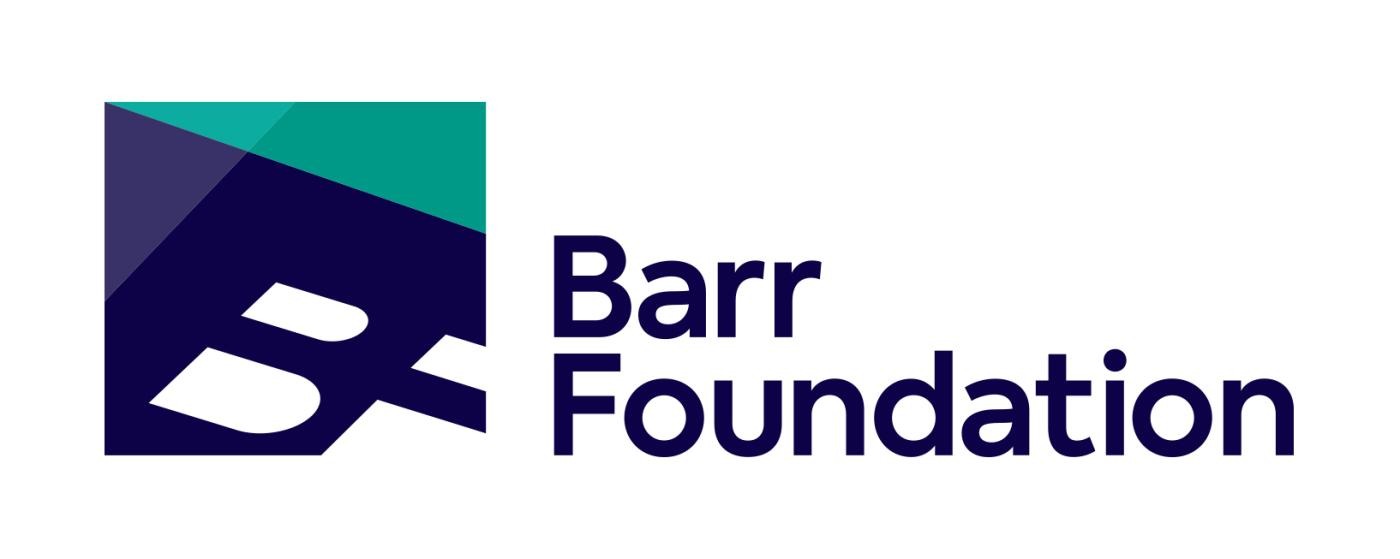What's Happening
Stay Connected
Receive the latest news, grant offerings, and community events.
At NEFA, we believe public art has the power to shift public culture and change the future, for the better.
Public Art for Spatial Justice aims to support public artmaking that helps us see, feel, experience and imagine spatial justice now, while we are still on this journey towards realizing more just futures for our public spaces and public culture.
Massachusetts-based artist(s) and Massachusetts-based organizations working with artist(s), are welcome to apply for a project grant. Projects must take place in Massachusetts and creatively cultivate expressions or embodiments of spatial justice through public artmaking. All artistic disciplines are welcome to apply.
Public Art for Spatial Justice grants range from $15,000-$30,000, for up to two-year grant period beginning March 2025 through February 2027.
Public Art for Spatial Justice is one of NEFA’s grant programs supporting artists in the field of public art.
For more information about other elements of NEFA’s Public Art programs:
VISIT THE public art PROGRAM PAGE
Lead Applicant must be based in Massachusetts.
Lead applicant may a be…
Recognizing the intersectionality of identities, we acknowledge that artists may also identify as cultural practitioners, activists, and community-rooted collaborators, and may be self/community-taught, institutionally trained, or a combination of both. All are welcome to apply.
Proposed public art projects must:
Public Art for Spatial Justice aims to support public art that helps us see, feel, experience and imagine spatial justice now, while we are still on this collective journey towards realizing more just futures for our public spaces and public culture.
To learn more about spatial justice check out this blog for more context.
Eligible projects will be reviewed according to the following funding criteria:
Priority will be given to projects that are:
As we lean into risk-taking with our grantees, we recognize feasibility of projects may vary. We ask that artists/lead applicants are realistic about feasibility with their understanding of the context of place and space, while acknowledging that aspects of the project may need to evolve during the grant period.
The deadline for Public Art for Spatial Justice was December 2, 2024, 11:59 PM ET.
Applications are accepted through our online grant portal.
Applicants will be notified of awards in late February 2025, with the grant year beginning in March 2025.
Grantees will have up to 24 months from the beginning of the grant period to implement projects.
PASJ grant payments will be released in 3 installments:
Note: Public Art for Spatial Justice grants are taxable income to individual recipients and reportable to the IRS. All grantees will receive an IRS Form 1099 from NEFA.
Upon receiving a PASJ grant, program staff will schedule an initial check-in to discuss any shifts in project plans, schedule an interim check-in based on the project timeline, and answer any questions grantees may have about the grant.
Reminder: PASJ grants will be released in three installments:
Grantees are required to complete an interim check-in with program staff to receive the second payment (45% of grant total). The date/time of the interim grantee check-in will be agreed upon but NEFA staff and grantee at the beginning of the grant year. Grantee will be asked to share an update on the project, including but not limited to major changes related to the project workplan, timeline or budget.
If unanticipated delays occur in your project timeline or major changes need to be made to the scope of your project, please contact the public art program staff to discuss next steps as soon as possible.
Preview Grantee Report Questions
Grantees are required to complete a final grantee report 40 days after the project is completed. Approval of final grantee report is required to receive the third and final payment (10% of grant total). Grantee report can be found in the online grant portal:
Grantees who do not submit a grantee report will not be eligible for future Public Art for Spatial Justice grants.
Note: If the timing of the payments presents an economic hardship, please contact the Public Art Team as soon as possible to discuss options.
Webinar 1 reviews the specifics of this grant opportunity and the eligibility requirements, funding criteria and priorities that will determine whether you can move forward to apply for this grant. We recommend starting here if you are new to PASJ.
Webinar 3 guides you on how to navigate the grants portal where you can access the application. We will offer tips on how to do this successfully and how to avoid technical difficulties along the way. We recommend this video if you are new to applying for grants and specifically applying for NEFA grants through the online grants portal.
* Note: These videos were made in 2023. For any discrepancies, please refer to the updated sections on our website and contact NEFA’s public art staff if you have any questions.
Public Art for Spatial Justice is made possible with funding from the Barr Foundation and the Fund for the Arts at NEFA.

Fund for the Arts
Receive the latest news, grant offerings, and community events.